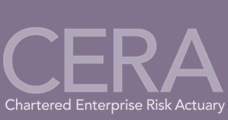-
blog
2025
- RBC (Risk-Based Capital)
- AUTHOR: Stephane Kakeu , Michelle Kenembeni

Coral Gables, 24 July 2025 – SL FINANCIAL is an independent actuarial consulting firm headquartered in Miami, Florida, with operations in Douala, Cameroon, and a presence in Nigeria under GOLDWYNS ACTUARY LLP. We specialize in risk management, regulatory compliance (IFRS 17), and data-driven actuarial solutions for insurers, captives, and financial institutions across the U.S., Africa, and the Caribbean.
In a continent rich with potential yet peppered with unique challenges, the African insurance sector stands at a crucial crossroads. As economies grow and evolve, so do the complexities of risk management and capital adequacy. Enter actuarial expertise—an often underappreciated powerhouse that holds the key to navigating these intricacies. In this blog post, we’ll delve into how actuaries are redefining success in Africa's insurance landscape by transforming data into actionable insights, enhancing decision-making processes, and ultimately paving the way for sustainable growth. Join us as we explore why investing in actuarial talent isn't just an option; it's a necessity for securing a resilient future in Africa's dynamic insurance market!
1. Introduction to risk management and capital adequacy in the insurance sector
In Africa’s dynamic financial landscape, risk management and capital adequacy aren’t just regulatory boxes to tick—they’re the cornerstones of resilient insurance operations. With economies in flux and insurance penetration deepening, companies must remain agile yet grounded.
Example: Take a health insurer in Kenya planning to expand into rural markets. Actuarial analysis can project claims costs under different scenarios—like outbreaks of infectious diseases or shifts in healthcare costs. This helps the insurer decide how much capital to hold in reserve while tailoring products that remain sustainable even in volatile conditions.
As competition and regulation intensify, actuaries enable insurers to interpret uncertainty, forecast risks, and preserve financial stability—empowering them to grow confidently without overexposing their balance sheets.
2. Understanding actuarial expertise and its role in risk management
At its core, actuarial expertise blends math, economics, and business insight to measure and mitigate financial risk. But it goes far beyond calculations. Actuaries reveal patterns buried in complex data and guide strategic decisions across pricing, reserving, and product design.
Example: Imagine a life insurance company in Nigeria noticing early signs of higher lapse rates among policyholders under 35. An actuary could pinpoint behavioral trends and suggest a loyalty bonus structure to retain that segment, while recalibrating premiums to maintain profitability.
They’re not just managing risk—they’re optimizing performance. Actuaries help insurers see around corners and act with precision, ensuring that risk-informed choices drive sustainable growth.
3. Why Risk-Based Capital (RBC) Matters for Africa’s Insurance Sector
In an industry defined by unpredictability, risk-based capital (RBC) offers a tailored approach to financial strength. Unlike traditional models, RBC accounts for the specific risk exposure of each insurer—ensuring capital levels are aligned with actual vulnerability, not just arbitrary thresholds.
Example: Picture a property insurer in Mozambique with a high concentration of coastal assets. Because of climate-related risks like cyclones and flooding, regulators using an RBC framework would require this insurer to hold more capital than a counterpart with inland exposure. This proactive buffer helps the insurer remain solvent even after catastrophic losses.
As Africa’s economies evolve and regulatory environments mature, RBC enables insurers to respond rapidly to market shocks—allocating capital more precisely, avoiding under- or over-reserving, and strengthening public confidence. Aligning with international RBC norms also signals credibility to global investors and fosters cross-border cooperation.
Ultimately, RBC isn’t just a compliance tool—it’s a strategy for long-term resilience and sustainable growth across the continent’s insurance ecosystem.
4. How actuarial expertise can help insurance companies meet regulatory requirements
Actuaries are the architects of compliance, transforming complex regulatory frameworks into practical strategies. Through rigorous modeling, they quantify risk exposure, assess reserve adequacy, and support decisions that keep insurers within the guardrails of law and prudence.
Example: Let’s say a motor insurer in Côte d'Ivoire launches a new premium policy targeting younger drivers. An actuary would evaluate accident probabilities within this segment and advise on both pricing and reserve margins that meet regulatory requirements—preventing underpricing that could jeopardize solvency.
Actuaries also collaborate with compliance and legal teams to ensure products meet not only financial standards but also local policyholder protection laws. By providing transparent reporting and stress-tested forecasts, they facilitate smoother audits and foster trust with oversight agencies.
In an increasingly data-driven regulatory environment, actuarial insights ensure that insurers don’t just tick the boxes—they build strategies that stand the test of scrutiny and scale with confidence.
5. Advantages of utilizing actuarial expertise in risk management and capital adequacy
Actuaries bring precision to risk assessment through advanced modeling, enabling more accurate pricing and efficient resource allocation. Their insights uncover portfolio vulnerabilities, strengthen regulatory compliance, and enhance transparency in financial reporting. By informing strategic decisions, actuarial analysis supports long-term stability and growth.
6. Challenges facing the implementation of actuarial techniques in the African insurance market
Adoption of actuarial methods in Africa faces hurdles like poor data quality, a shortage of skilled professionals, and fragmented regulatory environments. Organizational resistance to change and limited investment in modern tools further complicate implementation, slowing industry-wide advancement.
7. Case studies of implementation of actuarial expertise in African insurance companies
· Ghana: Strengthening Solvency Through RBC
Case Study: NIC’s RBC Rollout for Life Insurers Ghana’s National Insurance Commission (NIC) is leading a structured transition to RBC, particularly in the life insurance sector. The framework is designed to ensure that insurers hold capital proportional to their risk exposure, moving away from outdated fixed capital models2.
Key Initiatives:
· Development of a Ghana-specific mortality table to improve actuarial accuracy.
· Launch of actuarial capacity-building programs to support RBC implementation.
· Collaboration with insurers like Prudential Life Ghana, which has adopted strong governance and risk management aligned with RBC principles.
Impact: This shift is enhancing solvency oversight, improving product pricing, and boosting investor and policyholder confidence in Ghana’s insurance market.
· Nigeria: Regulatory Momentum Toward RBC
Case Study: NAICOM’s Strategic Push Nigeria’s National Insurance Commission (NAICOM) is actively transitioning from rules-based supervision to a Risk-Based Capital regime. This move is part of a broader effort to modernize the industry and align with global solvency standards4.
Ongoing Developments:
· NAICOM has committed to full RBC implementation, with tools and frameworks nearing completion.
· The framework evaluates insurers’ capital needs based on asset, credit, underwriting, and operational risks.
· Engagements with state governments and insurers are underway to ensure smooth adoption and compliance.
Impact: The RBC model is expected to improve capital efficiency, reduce systemic risk, and support inclusive insurance growth, especially in underserved segments.
Would you like these case studies turned into a policy brief, infographic, or presentation slides? I can help tailor them for your audience.
In an era where everyone is searching for an edge in financial decision-making, actuarial insight may just be the best-kept secret.
Visit: www.sl-financial.com | www.goldwynsactuary.com
Email: ceo@sl-financial.com | infos@goldwynsactuary.com
For any question or media inquiry, please visit our website at www.sl-financial.com or contact our team at that ceo@sl-financial.com.
MEDIA CONTACT
Achille Sime
CEO
2525 Ponce De Leon Blvd, Suite 300
Coral Gables, FL 33146
- Achille Sime
Principal/CEO
Fellow of the Institut des Actuaires France (FIAF)
Fellow of the Society of Actuaries (FSA)
Member of the American Academy of Actuaries (MAAA)
Chartered Enterprise Risk Analyst (CERA)
Affiliate of the Casualty Actuarial Society (AFFI CAS)
- bio





